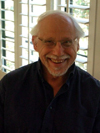By Jack Forman
 SAN DIEGO–Dusk is an intriguing, imaginatively-directed and very well acted 90-minute Israeli film which in Hebrew is titled Beyn Hashmashot. But a more accurate translation of the Hebrew title is “Twilight”; literally, “Beyn Hashmashot” means “between the suns”, i.e., between the sunset and the onset of evening. (In English, the onset of evening is commonly known as “dusk”, and in Hebrew it is “beyn Ha’Arbayim” – “between the evenings”).
SAN DIEGO–Dusk is an intriguing, imaginatively-directed and very well acted 90-minute Israeli film which in Hebrew is titled Beyn Hashmashot. But a more accurate translation of the Hebrew title is “Twilight”; literally, “Beyn Hashmashot” means “between the suns”, i.e., between the sunset and the onset of evening. (In English, the onset of evening is commonly known as “dusk”, and in Hebrew it is “beyn Ha’Arbayim” – “between the evenings”).
Twilight is located at the end (or the beginning) of the day when one has a filtered and therefore diminished vision of what is happening. The focus is still on the outgoing or incoming light of day. By the advent of dusk when it’s more dark than light, it’s pretty hard to see anything clearly.
In Dusk, the main characters see clearly, but act wrongly. Alon Zingman, the film’s director, skillfully sketches the stories of four Israelis who lie or otherwise hide the truth of their misdeeds from family members or refuse to accept responsibility for their misdeeds. He skillfully interweaves their very human, dilemma-filled stories into a compelling narrative, gradually revealing interconnections with the main characters and climaxing with the tragic intersection of the stories.
The film begins with the story of a very attractive young Argentine-Israeli woman who is taking Rafi, her winsome 9-year old son, to the hospital to undergo a circumcision which he did not have after birth because of the opposition of his non-Jewish father. From what Rafi’s mother says to her son, it initially appears that the father is overseas for job reasons and is not home often.
The second story deals with Alex, a loving father picking up his 20+ year old daughter (Oshri) at the Lod Airport after a long trip abroad. On the drive home, as a result of his own carelessness, he hits a cyclist, doesn’t stop and stonewalls what happened, despite his daughter’s protest and deep anguish.
Then, the film cuts to Chava and her six year old daughter she takes along to a municipal office to get a marriage license before dropping her off at school. But the papers she is given reveal for the first time that Chava was adopted by the parents who brought her up and the papers provide the name and address of her birth mother. Chava immediately sets out on an obsessed search for her birth mother, dragging along her pouting and often speechless daughter who doesn’t understand what is happening.
And, as Chava’s story and Alex’s hit-and-run accident play themselves out, the film portrays Amir Yadin, an elderly police officer who chastises Chava for leaving her young daughter alone in her car while she does her sleuthing and then is called to investigate the hit-and-run accident. Amir, it seems, has an estranged son who is a doctor at the hospital where the gravely-injured young cyclist is taken and where Rafi is supposed to have his circumcision.
There are a couple hard-to-accept coincidences that keep the narrative moving toward the climax. But one can overlook these artifices because of the film’s artistry and its power in portraying Israeli life and its characters’ need to come to terms with the lies and secrets in his or her life. Each character ultimately seeks forgiveness for his or her wrongs, but the pain and injury caused by them are too great.
At the film’s end, you won’t be certain what happens next to Alex and Oshri, Chava, Amir, and Rafi and his mother. But you will know they will be radically changed people after emerging from their moral twilight zones.
Additional information:
Languages of film: Hebrew with English Sub-titles
Dates, times and locations that film will be shown at San Diego Jewish Film Festival: February 11, 6:20 p.m. Clairemont Reading Theatre and February 15, 7:30 p.m., Carlsbad Village Theatre
5. On a five-star rating, reviewer’s assessment: Four stars
*
Forman is a freelance writer based in San Diego. He may be contacted at jack.forman@sdjewishworld.com